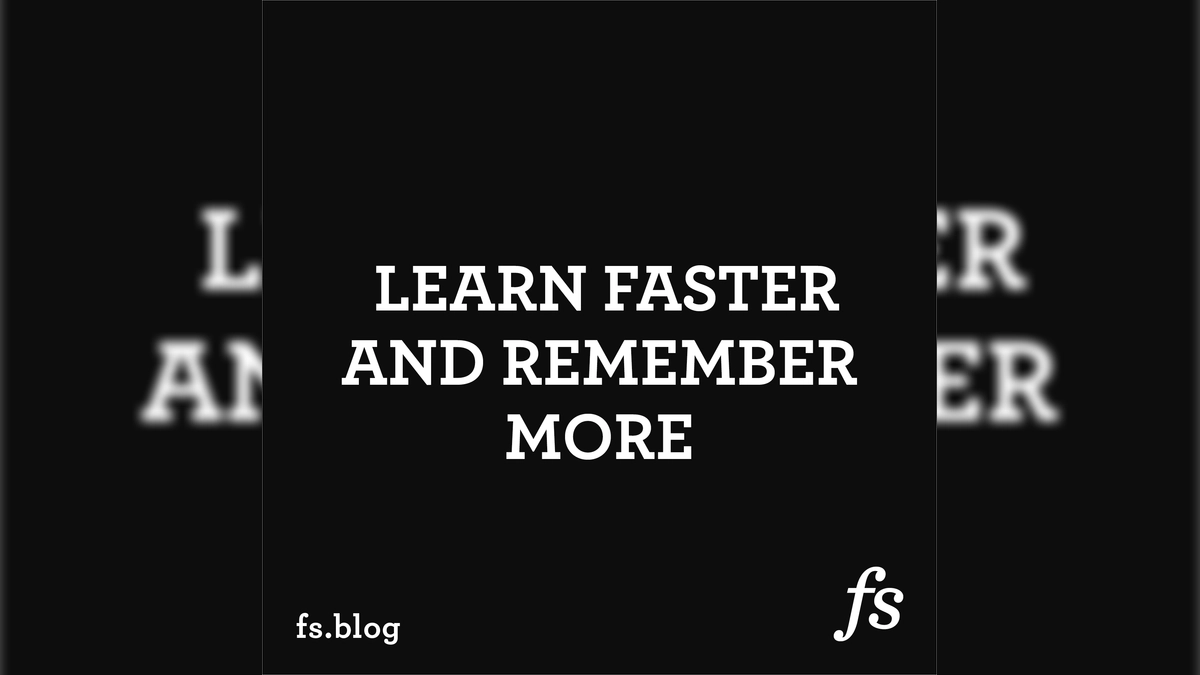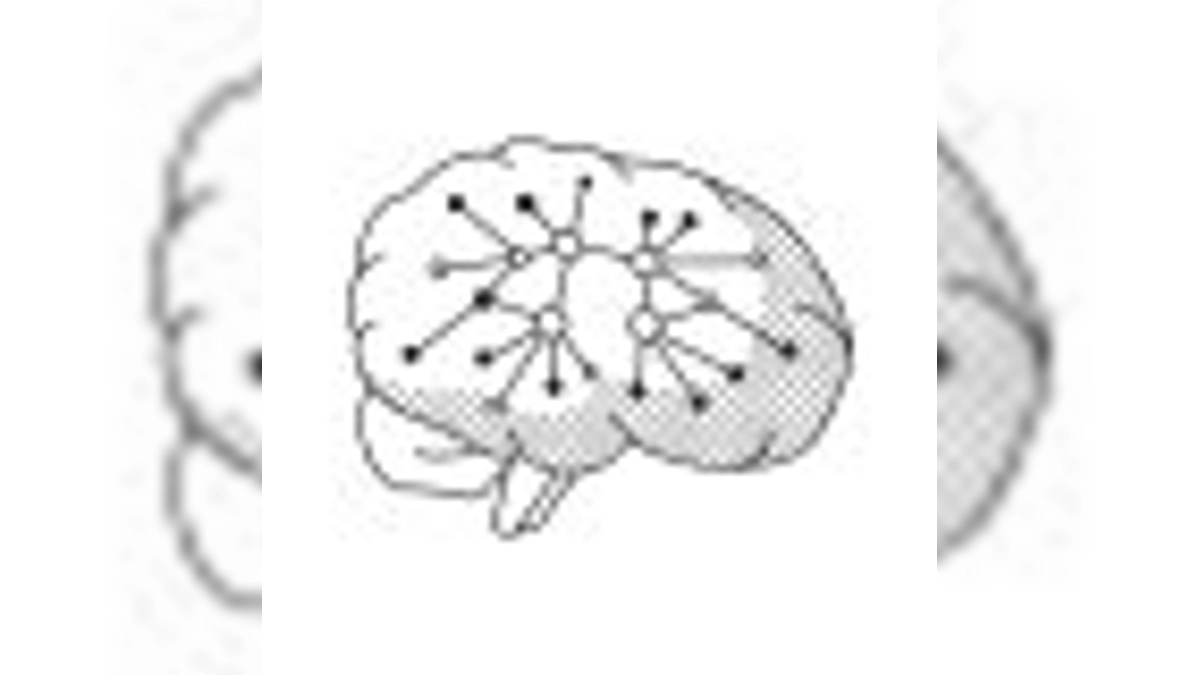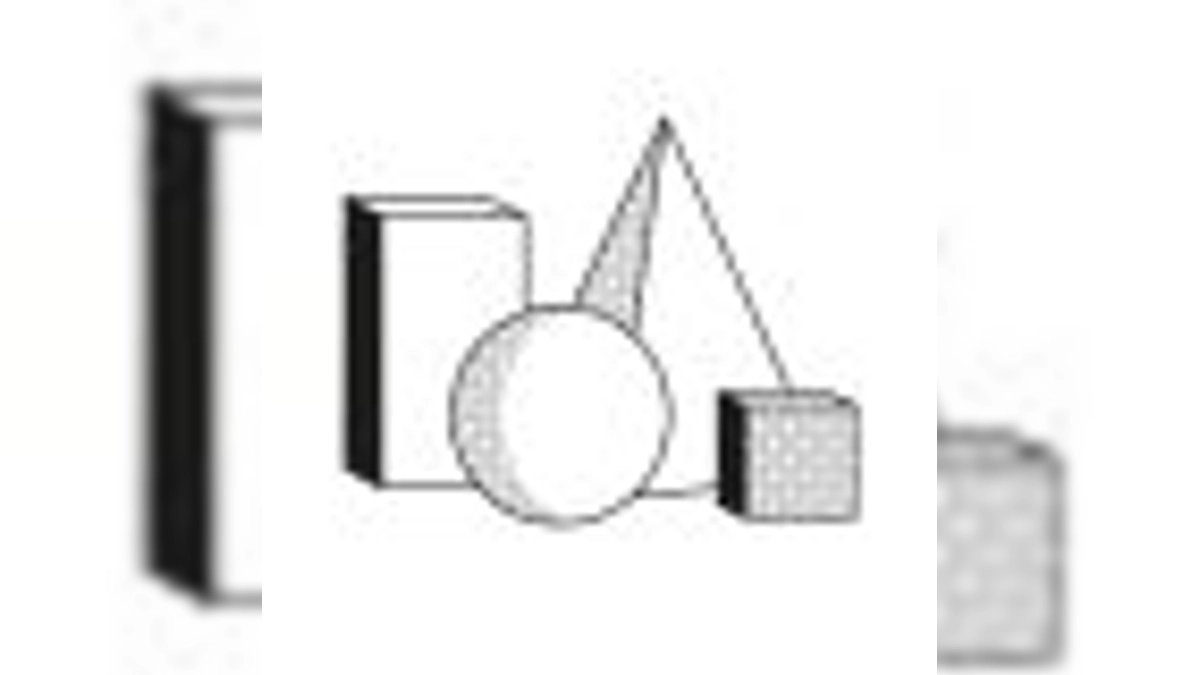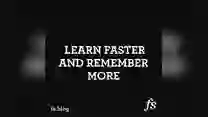Accelerated Learning: Learn Faster and Remember More
Train your brain to retain knowledge and insight better by understanding how you (actually) learn. Once you understand the keys to learning, everything changes—from the way you ask questions to the way you consume information.

You can train your brain to retain knowledge and insight better by understanding how you learn. Once you understand the keys to learning, everything changes—from the way you ask questions to the way you consume information. People will think you have a superpower.

Learning is the act of incorporating new facts, concepts, and abilities into our brains. We start learning in the womb and we never stop; we are always developing new competencies. Every new bit of knowledge we acquire builds on what we already know and gives us a fuller, richer picture of the world. And the more developed our understanding of the world is, the easier it is for us to adapt and pivot when our circumstances change.
We know from biology that organisms that can adapt to their constantly changing environment survive and thrive. Those that can’t eventually go extinct. The same is true for us in our life and work. We all know the person at work that hasn’t adapted to the changing times. Their unwillingness to stretch themselves and learn something new makes it seem like they are moving backwards.
People can end up stuck with a static amount of knowledge because we don’t just passively absorb new ideas and information. Learning something new requires active engagement. At FS, we see learning as part of our daily job. We get better to help you get better, and we give you the tools to learn.
The greatest enemy of learning is what you think you know. When you think you know something, learning something new means you might have to change your mind, so it’s easy to think there’s no room for new ideas. But not wanting to change your mind will keep you stuck in the same place. Overcoming our egos can be one of the big challenges of learning. Therefore, being willing to admit when you’re wrong and adjust your thinking is the thing that will help you learn the most. The first step to learning is recognizing your ignorance and deciding to do something about it.
At FS, we believe that thriving in life means relentless lifelong learning. Things change quickly, and you can’t coast on what you already know. The best approach you can take towards learning is one that helps you go to bed a little bit smarter each day.
WHY WE’RE BAD AT LEARNING
One reason why we’re bad at learning is that we bring a lot of baggage to it—baggage we often pick up early in life and then struggle to let go of later. If you can let go of assumptions about what you should do, you can learn much more effectively. One major piece of baggage we accrue is the belief that if we’re not visibly active, we’re not learning. This is incorrect. Learning requires time to reflect. It requires discussing what you’ve learned and letting your mind wander. You need to let go of trying to look smart, and focus instead on trying to be smart.
We sometimes struggle with learning because we expect it to be easy. We’d all like to find a silver bullet: a quick, easy shortcut to picking up whatever we want and never forgetting it. The internet teems with blog posts promising you can learn a language in a week or to code in a month or how to play the violin overnight. This is all bull. Learning isn’t just knowing something for a day. It’s deep wisdom that allows you to create, innovate, and push boundaries.
Another reason we’re bad at learning is that the modern world erodes our attention spans by training us to be in a constant state of distraction. It might feel good in the moment to jump to the latest ping on your phone, but learning requires deep focus. When you’re in a distracted state, new information can’t fix itself in your mind, and you end up with gaps in your understanding. Focusing is an art—through experimentation and creativity, you can build systems that let you give your full attention to whatever you’re learning.
When we talk about accelerated learning at FS, we don’t mean you can overcome the need for hard work. We mean it’s possible to find ways of learning that give you tangible results, instead of using ones that waste time or get you nowhere. But no matter what, you still need to do the work. Learning should be difficult, but that doesn’t mean it can’t be fun.
In fact, you enhance your skills the most when you stretch yourself to the limits of your abilities. Pushing yourself to the point that feels challenging yet doable is the foundation of deliberate practice, the technique elite people in every field use to grow their expertise.
Outside of your intellectual comfort zone is where you experience the greatest learning. For this reason, having a lot of helpful guidance early on can be counterproductive if it eliminates the all-important struggle to master new material.
You might fail if you move beyond what you find comfortable. You might apply new knowledge incorrectly or misunderstand the key points of an argument in a new field. This is painful. It also offers the opportunity to learn from your failures. We all hate looking dumb, but you can’t let failure dissuade you from trying to expand your circle of competence.
TWO MAIN SOURCES OF LEARNING
There are two main places we can learn from: our own experience and history, or the experience of others. Exploring the distinction between the two can show us the best ways to learn from each of them.

Learning from history
You can learn from the experiences of others by studying history and applying its lessons to the present. History tends to repeat itself, so the dilemmas and decisions you face today often have historical antecedents. Studying the past helps us know how to shape the future. History is one of our biggest sources of fundamental knowledge.
Any time you learn from the past, remember that knowledge collapses over time. Much of what you know today will one day prove false, just like much of what people knew a century, fifty years, or even a decade ago has since proved false. Facts have a half-life, one that can be especially short in fields like medicine and the social sciences.
It is a mistake to think we have reached the endpoint of human knowledge, or that anything you learn now will be true forever. When you learn from history, you draw from lessons shaped by the perspective of the person who captured what happened. Thus, historical knowledge is something to continuously update as you learn both from what happened and how you choose to look at it.
Learning from experience and reflection
In addition to reading, direct experience is the other main way we learn.
Double loop learning is a way of updating your opinions and ideas in response to new evidence and experience. When you keep repeating the same mistakes, you’re using single loop learning. It doesn’t get you far. When you reflect on experiences, collect new data, and make an active effort to seek out feedback, you’re using double loop learning.
Reflection allows you to distill experience into learning. Don��’t just “do,” think about what you’re doing and what you’ve done. High performers make adjustments based on both their successes and failures.
LEARN BETTER
We recommend the following two proven techniques for improving your learning.
The Feynman Technique
If you want to supercharge your learning, the single most effective technique we’ve uncovered for absorbing new concepts comes from the famed Nobel Prize-winning physicist Richard Feynman. The Feynman Technique ensures you understand what you learn. It includes the following four steps:
- Choose a concept you wish to learn about.
- Pretend you are teaching it to a child—a sixth-grader, specifically. Write your explanation down or say it out loud.
- Identify any gaps in your understanding that might show up when you try to simplify the concept; go back to the source material to find the information you need.
- Review and simplify your explanation again.
It works because writing out a concept in language a child would understand forces you to understand it at a deeper level. Sometimes we use jargon and complicated language to hide what we don’t understand. The Feynman Technique lays bare the true extent of our knowledge.
Similarly, asking better questions is a route to faster learning. The most mundane questions—the ones a sixth-grader might ask—can sometimes teach us the most because they require an explanation that digs into the details.
How do you know if you’ve truly learned a new concept? Feynman proposed a simple alternate test: try to rephrase it in your own language without using its actual name. For instance, describe what enables a dog to run without using the word “energy.”
Spaced repetition
Rote memorization doesn’t work. Period. The key to effective learning is spaced repetition, a technique that works with the way your brain naturally retains information, not against it.
Spaced repetition involves revising information at increasing intervals. This reflects and combats the fact that once you learn something you gradually forget it, with the forgetting happening fast at first, then leveling off. Using spaced repetition, you remind yourself of information often at first, then less often.
Memory mastery comes from repeated exposure to new material. In order to learn something, you need to retrieve it from memory again and again. Retrieval makes information stick even better than re-exposing yourself to the original material.
ARTICLES ON ACCELERATED LEARNING
- The more we learn about the world, the more we can learn about ourselves, according to Nietzsche.
- “Knowledge makes everything simpler”: advice for learning from executive and technologist John Maeda, including why you should teach yourself the basics and why metaphors are powerful for transferring information across contexts.
- Charles Darwin may not have had an unusually high IQ, but he was able to outpace other thinkers by learning how to balance out his deficiencies.
- Ken Iverson, the former CEO of Nucor Steel, believed MBAs should focus on teaching students how to understand and lead people above all else.
- Harvard biologist/psychologist Steven Pinker’s career is a testament to the benefits of multidisciplinary thinking. Here’s what he believes students should learn as part of a thorough education.
- In a charming letter to his son Hans, Albert Einstein said the best way to learn is to enjoy something to the point where you don’t even notice the time passing.
- Even the most skilled teachers struggle to overcome the reality that we forget most information shortly after being exposed to it. Effective learning requires building your own understanding, with the guidance of an expert teacher.
- Chess and martial arts genius Josh Waitzkin teaches us that the art of learning requires first mastering the fundamentals by breaking a skill down into blocks.
- “Mozart’s Brain and the Fighter Pilot” shows us that we get smarter by exercising our cognitive powers in the same way that we get stronger by exercising our muscles.
- Never learning to paint via the conventional route helped Vincent van Gogh approach his work in a unique way, noticing details a trained artist might not have.
THE BEST BOOKS ON LEARNING
- The Art of Learning: An Inner Journey to Optimal Performance, Joshua Waitzkin
- The Laws of Simplicity, John Maeda
- Make It Stick: The Science of Successful Learning, Peter C. Brown, Henry L. Roediger III, and Mark A. McDaniel
- Mindshift: Break Through Obstacles to Learning and Discover Your Hidden Potential, Barbara Oakley
- Ultralearning: Master Hard Skills, Outsmart the Competition, and Accelerate Your Career, Scott H. Young
- Mastery, Robert Greene
- Brain Rules: 12 Principles for Surviving and Thriving at Work, Home, and School, John Medina
- Deep Work: Rules for Focuses Success in a Distracted World, Cal Newport
- Mindset: The New Psychology of Success, Carol S. Dweck
- The Talent Code, Daniel Coyle
CONCLUSION
Learning isn’t something you do at the behest of someone else. You’re responsible for it. According to the prolific author Louis L’Amour, all education is self-education. If you don’t take charge of your learning, no one else will. Maya Angelou and George Washington took the same view. It’s up to you to build the habit of lifelong learning.
Explore Farnam
Street Articles
Are you new to Farnam Street? Start here
Accelerated Learning
Learn faster and remember more.
Mental Models
The best way to make intelligent decisions (~100 models explained).
Decision Making
How to make smart decisions without getting lucky.
Reading Better
Improve reading comprehension and recall, and effective note-taking.
Self Improvement
Train your brain to retain knowledge and insight better by understanding how you learn.
